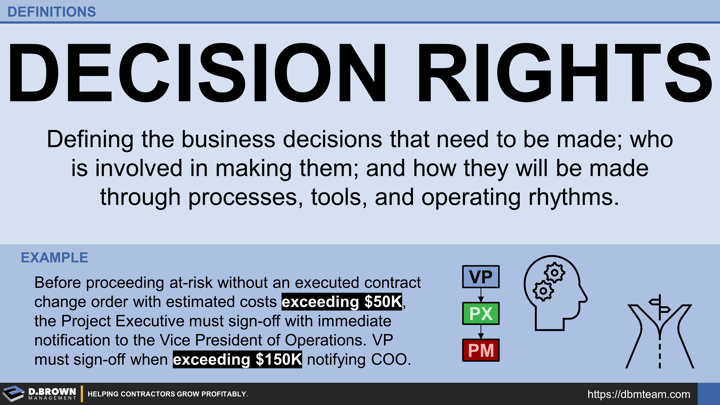Growing a construction business involves constantly moving job roles from more generalized and concentrated to more specialized. This involves clarity in job role descriptions including responsibilities, key results expected, decision rights, and boundaries.
Decision Rights are a critical component of Organizational Development and directly relate to Delegation.
EXAMPLE
Before proceeding at-risk without an executed contract change order with estimated costs exceeding $50K, the Project Executive must sign off with immediate notification to the Vice President of Operations. VP must sign off when exceeding $150K notifying COO.
This is an example only. If you don't find your decision rights to be consistent with job roles, you should evaluate the people in those roles and ask:
- Are these two people really being asked to do the same role, or are they different roles with different expectations, requiring different capabilities but called the same thing?
- Is this person really doing what is expected in the role? If not, are they (A) in the learning curve of the role - first 90 days to 12 months, or (B) truly not doing the role and it is just "Title Inflation"?
Effective organizational hierarchies, decision rights, and information systems including scoreboards must be aligned.

